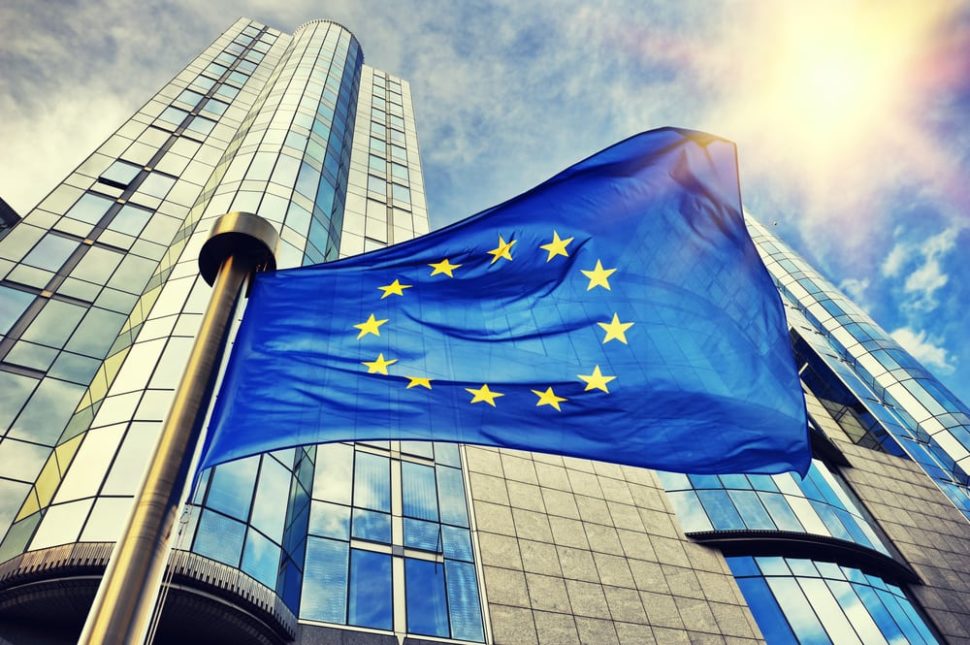Memers across the globe rejoiced today with the news that Article 13, a copyright law proposed by EU lawmakers, failed to receive enough votes to be implemented.
The new data protection law in the EU known as the General Data Protection Regulation (GDPR) ruffled more than a few techies’ feathers. But another potential law raised more concerns for simple internet users as opposed to tech companies.
While the GDPR has been implemented, this copyright law is a separate movement. As proposed, Article 13 would have disastrous consequences for internet users.
The intent is to hold third-party companies more accountable for intellectual property theft and to maintain copyright law more strictly across digital outlets. Of course, this article didn’t account for nuances such as fresh and crispy memes.
Article 13 haters can rejoice — the European Parliament did not vote in the new law’s favor.
Do it for the Memes my Dude
If you don’t recognize the meme above, that’s probably because the main image behind the meme has been removed. The internet gathered en masse to showcase how the new copyright law might adversely affect internet culture, creativity, and business.
For reference, the above image is supposed to be the “pigeon meme” as pictured to the right.
Given that memes are, by nature, a small kind of copyright infringement, they make an easy target for things proposed in Article 13.
And while, in the U.S., the “parody” clause of the Digital Millennium Copyright Act (DMCA) might protect internet memes, there wasn’t much room for nuance in Article 13.
The intent behind Article 13 centered around trying to protect content and give new rights to publishers and content owners. This would, in theory, allow them to negotiate more effectively with larger tech firms such as Google.
Four separate parliament committees scrutinized the initial law draft over two years. One wonders what a compromise will look like moving forward.
The contention revolved around two main things:
- More rights for smaller publishers in a landscape with many large, influential tech firms such as Google, Microsoft, and others.
- Proposed mandatory filtering for uploads on platforms such as Instagram, YouTube, and GitHub that prevent users from uploading previously copyrighted content
With rules like this, creative endeavors such as video essays and fan tributes wouldn’t fly. Even silly video game/Disney song parodies by yours truly would get insta ban-hammered.
How can the European Parliament Move Forward?
Due to the impending GDPR rules, some companies shut down completely. Consider social media tracking company Klout that aggregated data from social platforms to produce “social scores”.
They potentially violated new GDPR guidelines. This might explain why parent company Lithium Technologies shut them down.
Those against Article 13 wanted to avoid such drastic measures.
As a result, many people weighed in on how to improve the real-world applications of the intent behind Article 13. Tech companies obviously wanted Article 13 not to become law, but consumer group like BEUC chimed in, as well.
“The internet must remain a place where consumers can freely share their own creations, opinions and ideas. MEPs (lawmakers) have a chance to correct a heavily unbalanced report and make copyright work for both consumers and creators,” said Monique Goyens, BEUC Director General.
I can’t really decipher whether or not this quote is in favor of the rejection or not.
But opposition to Article 13’s rejection voiced their concern over the vote.
As reported in Reuters, Axel Voss insisted that EU copyright reform needs to happen. It needs to establish a more fair and sustainable digital ecosystem that benefits creators, consumers, and distributors.
When the European Parliament revisits the subject in September, perhaps we will get a definitive answer on the future of European copyright law.



















Comments (0)
Most Recent